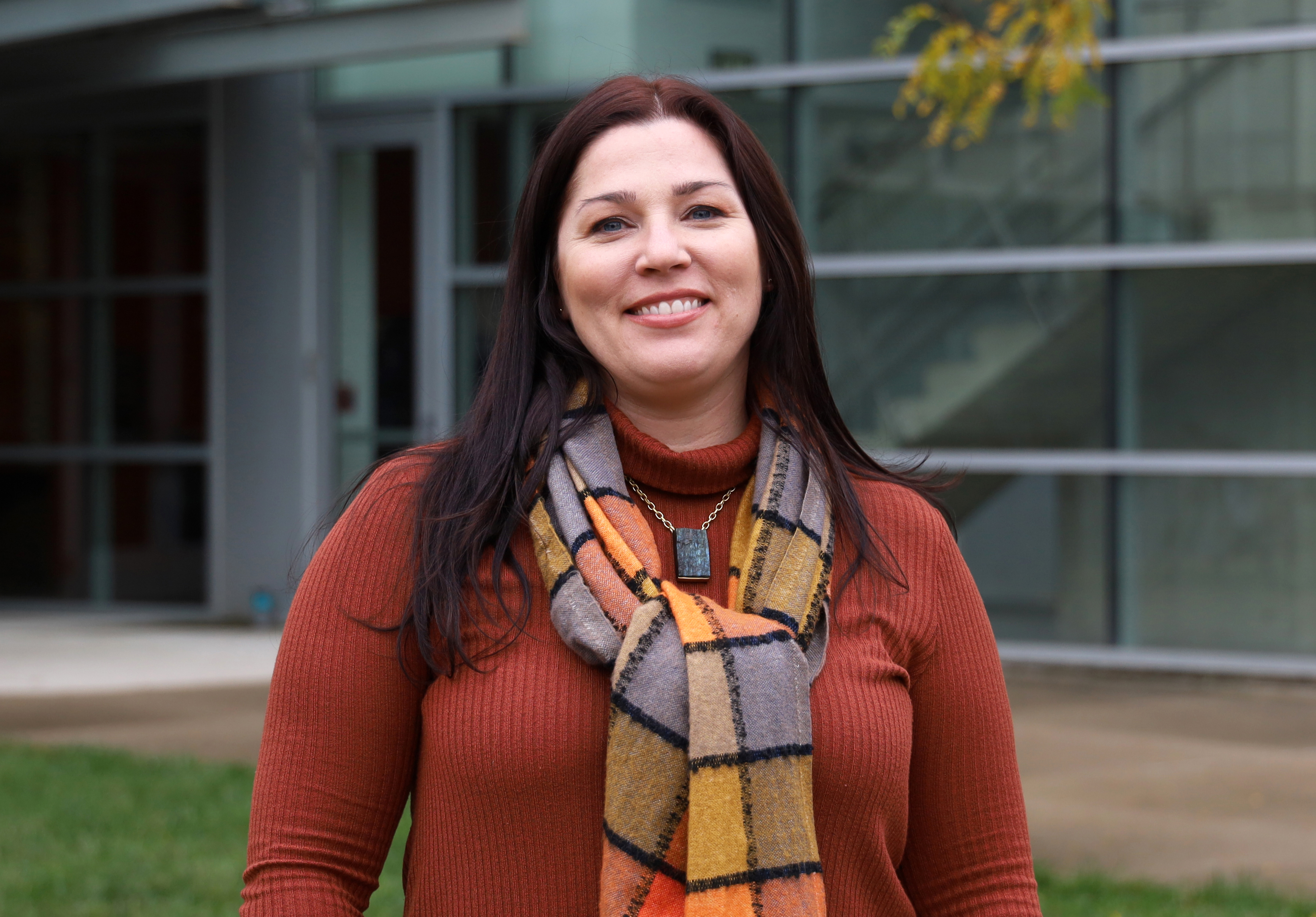PhD student seeks to combat stigma, build resilience
Stacy Endres-Dighe focuses on HIV prevention among rural Appalachian Ohioans who inject drugs
By Kristen Mitchell

Stacy Endres-Dighe was a child when she learned about the chilling impact of stigma on health. Her uncle died during the height of the HIV/AIDS epidemic after delaying testing and treatment because of the way society viewed AIDS patients at the time.
“It had this ripple effect on my family,” she said. “I knew…that something, this stigma and the reason behind him not pursuing health care, was a serious public health problem.”
This foundational experience fuels her interest in public health decades later. As a PhD student in epidemiology at the College of Public Health, Endres-Dighe is focused on the impact of resilience on stigma and HIV prevention among individuals who inject drugs in rural Appalachia Ohio.
More than 25,000 Ohioans were living with HIV in 2022, according to the Ohio Department of Health. People who inject drugs are at an increased risk of contracting HIV because it can be spread by sharing syringes and needles and because drug-use can lead to increased risky sexual behaviors. Those living in Ohio’s rural Appalachian counties are at especially high risk, Endres-Dighe said.
This population — among the most in need of HIV testing, care and treatment — are reluctant to seek it out. Stigma serves as a formidable barrier to HIV prevention because people avoid care fearing mistreatment from providers and the wider community, social exclusion, blame and discrimination, Endres-Dighe said. And the potential impact of stigma becomes even more complicated when compounded by stigma associated with injection drug use.
One path to combating stigma? Building resilience. Through her dissertation research, Endres-Dighe is examining whether resilience has a positive impact on the effect of stigma and the uptake of HIV prevention measures among Appalachian Ohioans who inject drugs. She is using a scale developed by Adjunct Associate Professor Kathryn Lancaster.
Endres-Dighe recently received a competitive R36 National Institutes of Health dissertation award to support her work as approaches the final months of her PhD program. The grant provides funding to cover her tuition expenses, a stipend for costs such as conference attendance, and other tools she needs to complete her analysis.
Maria Gallo, CPH associate dean of research, said the award — which few Ohio State students have ever received — sets students up on a “trajectory for career success” in competing for research funding.
“It is a testament to the importance of her research questions, her hard work in developing her application and the care and support of her faculty mentors,” Gallo said. “Hopefully, she will be a role model for others.”
Alison Norris, an epidemiology professor who serves as Endres-Dighe’s advisor, said she is “exemplar of the combination of hard working, intelligent and collaborative that makes for a really gifted researcher.”
“Lots of people have good ideas,” Norris said. “Stacy brings her good ideas to fruition through persistence.”
Endres-Dighe has worked for more than a decade as a research epidemiologist focused on international populations at high risk for HIV. She worked on research surveys designed to help countries better understand what was driving HIV transmission among their population and how to address it.
CPH’s expertise in HIV research made it an ideal place for her to pursue a PhD, she said. Since starting the program in 2020, she has traveled around the state recruiting hundreds to participate in the college’s research.
She hopes her work contributes to a deeper understanding of stigma’s impact and increased knowledge about whether existing interventions can be enhanced by fostering resiliency among these at-risk populations.
“That would be a major tool for future interventions if we could find a way to use this resiliency process to empower marginalized populations, and therefore, overcoming that gap,” she said. “There is such a big problem and finding any way to make a positive impact is so important to me.”
About The Ohio State University College of Public Health
The Ohio State University College of Public Health is a leader in educating students, creating new knowledge through research, and improving the livelihoods and well-being of people in Ohio and beyond. The College's divisions include biostatistics, environmental health sciences, epidemiology, health behavior and health promotion, and health services management and policy. It is ranked 22nd among all colleges and programs of public health in the nation, and first in Ohio, by U.S. News and World Report. Its specialty programs are also considered among the best in the country. The MHA program is ranked 5th and the health policy and management specialty is ranked 21st.